The SBC Belongs to the “Small” Churches. It’s on us to Make our Voices Heard in Indianapolis.
The Southern Baptist Convention is a gift from God to His Church. Our theology, as set forth in the Baptist Faith & Message 2000, is sound. Our arms, the entities, reach around the world through the IMB. And our people, Southern Baptist churches, are generous and passionate to see God’s Great Commission fulfilled.
But we are not without our flaws. Our statement of faith is not always upheld. Our entities sometimes drift—or are actively led in a liberal direction. And our churches often do not do the hard but necessary work to hold them accountable. It is that last category that I am specifically concerned about here.
The SBC comprises approximately 46,000 churches. Some are megachurches with multiple campuses and thousands of members. However, the vast majority of Southern Baptist Churches (approximately 70%) have less than 100 members. Such is the case of my own humble church.
Being a pastor of a small church, perhaps where you are the only full-time staff member, is joyful, humbling, and hard work. Caring for members, preparing sermons, and reaching your local community is more than enough to keep you occupied. It’s more than enough to keep you focused, almost exclusively, on what is happening right around you on a day-to-day basis. You might be aware that there are “some issues out there” in the SBC, but making the time to get smart and get involved in Convention life can seem like a luxury reserved for the big boys in the big churches with the big staffs.
But it’s not a luxury—it’s a necessity. As Jon Whitehead recently explained, “Our institutions cannot serve as our watchdogs. Laymen, churches, and messengers must serve as the watchdogs. In Baptist life, the institutions are accountable to the messengers. It has to come from the churches and laymen.”
I agree. As the 2024 annual meeting is rapidly approaching, I contend that smaller churches, led by their pastors, should care deeply about the SBC and make every effort to come to Indianapolis. Here are five reasons why.
Because “Small” Churches Are Significant
I’ve been using the word “small” to describe churches like mine. But as the statistics show, churches with less than 100 members aren’t “small” at all—we are the majority of SBC churches! Yes, we may be tempted to consider ourselves insignificant, but nothing could be further from the truth, both from a “composition of the SBC” perspective and from a theological perspective. I shouldn’t have to spill much ink to convince you that your small church is not insignificant in the eyes of God; I’m sure we both agree on that.
But do you think yourself insignificant to your Convention? When you look out on your congregation of 50, 60, or 70 people, do you question whether you deserve to speak into Convention life? Well, your small church is no less significant to the future of the SBC than it is in the eyes of God.
A better way to think and talk about our churches, then, is as the average SBC church. When you think about the SBC, the image that you should have in your mind isn’t an Executive Committee meeting in Nashville or a megachurch packing out a local stadium for an Easter Sunday Service, but that small, country Baptist church you grew up in.
Small churches are the heartbeat of the Convention. Unfortunately, we have abdicated our rightful responsibility of representing the average church in the SBC to the churches with deeper wallets, multiple campuses, and louder megaphones. It’s time to take the microphones back because each and every one of our churches is important to the life and health of the SBC.
The only way we become “insignificant” is when we fail to attend the SBC annual meeting and make our voices heard. When we don’t send the messengers our churches are allotted, even if it’s “just” two, we relegate our churches to the role of spectator in Convention life. Such things should not be.
For Accountability
If the Convention’s direction should drift, who will hold her accountable? The answer is the same today as it was when the Convention was founded: the churches.
The SBC is not an oligarchy run by a small group of elites, though she is sometimes treated as such. Many such “insignificant” churches wrongly consider themselves unable to hold the Convention accountable when they do not like the direction things are going. I know several churches, not unlike my own, that have already or are currently considering leaving the Convention because the task of accountability seems out of hand.
But I ask, if we will not hold the convention accountable, who will? When our small churches decide not to attend the annual meeting or keep up with the goings-on in the SBC, we willingly make ourselves unable to hold anyone accountable. We absolutely can enact change, but we have to make the effort to show up.
The churches do not belong to the Convention; the Convention belongs to the churches. The churches do not work for the entities; the entities work for the churches. The churches are not accountable to the trustees; the trustees are accountable to the churches. And yes, they are accountable to small churches like mine and yours, just as much as they are accountable to the “flagship” churches with better buildings, more money, and more apparent “power.”
It’s our job, brothers, to hold the SBC accountable. The size of our church does not exempt us from this critical task.
To Steward Our Institutional Power
How could one church of less than 100 members train the next generation of pastors, speak out on important ethical issues in our culture on a national stage, and send thousands of missionaries all over the world? Simply put, one church couldn’t do all of those things. Not even one state’s worth of churches could ever wield so much institutional power at scale. This is why we partner for the gospel and cooperate together to accomplish such important and massive endeavors.
I’m unaware of any other Protestant denomination in the world with as many entities as the SBC. As Southern Baptists, we cooperate in order to have and maintain this institutional power, to steward it for the advancement of the gospel, the good of our neighbors, and the glory of God. The institutional power of the SBC is immense, and as the old saying goes, with great power comes great responsibility.
Our small churches must hold our own institutions accountable so that together, we can wield their power for righteous ends. For church planting. For missions. For biblically sound cultural and political engagement. My church, no matter how much we grow through our revitalization, will never get a sit-down meeting with the President of the United States. But our Convention entities, like the ERLC, occasionally do. No matter how much we might grow, my church will never be able to plant churches worldwide. But the IMB does.
We have several great institutions of power that, when held accountable, can be wielded and used to give our small churches a voice in the cultural landscape. And if we lose these institutions to liberalism and compromise, we can’t just “rebuild” or “start over.” It’s taken decades for the SBC to become the gospel powerhouse that it is today.
This is the mantle of stewardship for our generation; it is our fight to ensure that the SBC stays committed to sound doctrine. When we see the institution start to drift off course, adopting worldly ideologies or downplaying important doctrines like complementarianism, we can’t just “hope for the best.” We must act.
For the Sake of Our Cooperation
I pray that, in ten years, my church, along with others, will be able to plant a church on the other side of town. We are in a growing suburban area, and the need for good, healthy churches even 10 miles down the road is ever-expanding. I expect to cooperate with other churches for the mission of God in our local area and to the ends of the earth. The SBC is one of the greatest tools for gospel cooperation ever built.
Many of our Cooperative Program dollars go to sending missionaries, training pastors, and planting churches. That is a good and glorious thing, and we should never want to decrease our cooperation in these areas.
Thus, we small churches should care about the state of the SBC because it means caring about the state of our cooperation. Like wielding institutional power, we can wield dollars and people unknown to us for the mission of God through our cooperation in the SBC. We should care deeply about how our Convention handles finances, trains pastors and missionaries, and plants churches because, through the SBC, we get to cooperate in the Great Commission.
But our cooperation must be grounded in doctrinal unity. Cooperation for the sake of cooperation is not the goal. “Can two walk together, unless they are agreed?” (Amos 3:3). True Christian unity, and therefore cooperation, must also be built on shared—and sound—doctrine.
If small churches in the SBC don’t take this seriously, one day, they might explore partnering with another local SBC to plant a church and discover, to their shock, that the other church wants to plant an egalitarian church. What cooperation can be had then? Not much.
To Defend God’s Glory
Ultimately, we small churches should care about the SBC and make every effort to get to Indianapolis for God’s glory. That’s the goal in all of this. To faithfully “contend for the faith that was once for all entrusted to God’s holy people” (Jude 1).
God is glorified when our Convention is faithful. God is not glorified when our Convention is a drifting mess, full of unbiblical church practices and doctrinal compromise. Many of us have been rightly “dunking” on the LGBT-affirming apostasy we witnessed by the United Methodists over these last weeks, but we should also be grieving. God is not glorified to see the abomination they have become.
Yes, the SBC has not drifted yet so far. But just because we haven’t arrived at the same destination doesn’t mean we can’t rightly spot we are headed in a similar direction, even if we are moving slower. But we ought to care far more about the glory of our Savior than to compare ourselves to Sodom and Gomorrah and then feel good about it.
Small churches and pastors, we should show up to Indianapolis for God’s glory. We should care deeply about the SBC for God’s glory each year and on every issue. We should care about God’s glory in the SBC enough to take the time to come to the annual meeting and do the hard but necessary business of participating in Convention life.
Conclusion
I am amazed at rock sculptures such as Mt. Rushmore. I often wonder to myself, “How did they make that? How long must it have taken? What tools did they use?” I’m no stone mason, but what I know for certain is such works of history weren’t made in a day. Yes, they cleared the area with dynamite first. But it was thousands of careful and attentive chisel strokes that eventually made the intricate and timeless faces that rest in the rocks today. Ultimately, you make magnificent and lasting things like Mt. Rushmore simply one chisel at a time.
So shall the SBC be made and remade, with one small church at a time, finally realizing that they can make a difference. And with one annual meeting at a time—filled by messengers from those churches.
-

Alan Patrick is the Senior Pastor at Glenrock Baptist Church in Fort Mill, South Carolina. He holds a B.A. in Pastoral Ministry from Southeastern Baptist Theological Seminary and is currently working on his M.Div. at SEBTS as well. He is married to his wife, Haley, and has one son. Alan enjoys reading, writing, being outdoors, and all things Clemson. He has written for organizations such as 9Marks and the Center for Faith and Culture and is the author of Faithful Pulpit Supply. For more information, visit Alan’s website: http://jalanpatrick.com

